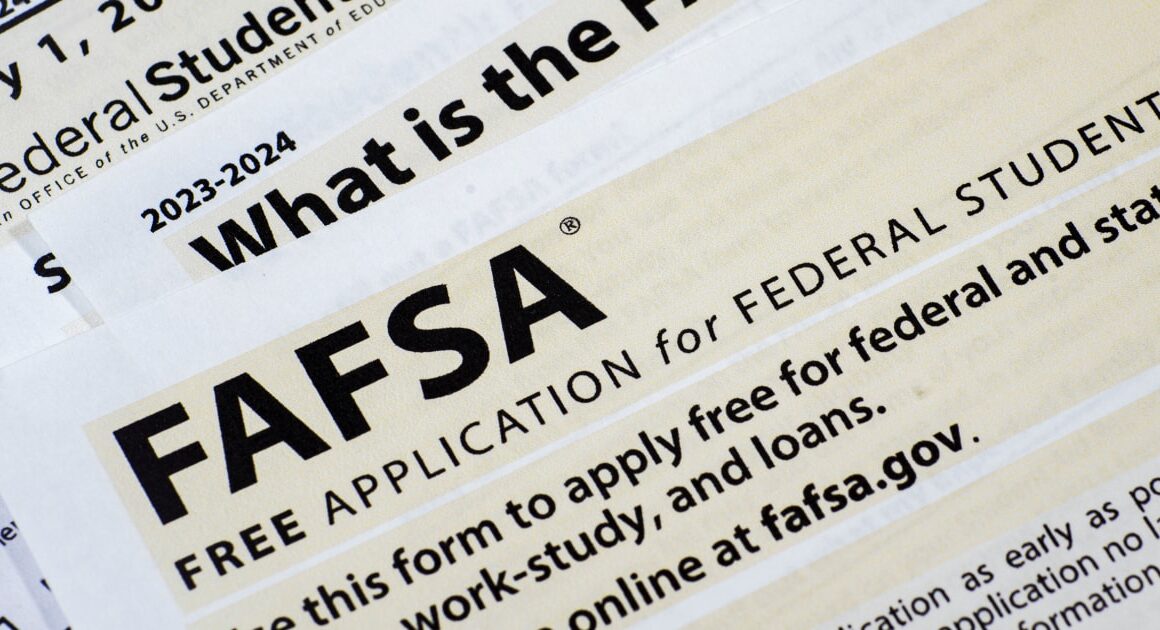Some students may be unable to receive their financial aid money in time to pay their bills, with classes only a few weeks away, after the Education Department announced Tuesday that colleges will not be able to submit corrections to financial aid records in bulk this year.
The announcement is yet another obstacle for students during what has been a turbulent rollout in the overhaul of the Free Application for Federal Student Aid, or FAFSA. Since the new form was released in December 2023, the rollout has been plagued by delays, glitches and processing errors in a system that helps millions of college students receive critically needed financial aid.
The department announced on Tuesday that “batch corrections” would be deferred until the 2025-2026 FAFSA cycle, after previously saying in June that it would be available by mid-August.
“We know this decision creates additional burdens for institutions that are already experiencing a heavy workload and increased demands during this extraordinary FAFSA processing cycle,” it said in a statement.
The issues for students began with the application’s December launch and have included a series of glitches and formula errors in what was supposed to be a more streamlined process with more generous outcomes for some students. Instead, millions of households and campus officials have been left in bureaucratic limbo.
In April, Education Department officials disclosed that at least 30% of the FAFSA forms submitted by that time could contain errors resulting from widespread application glitches or other issues. The agency said at the time the forms would be reprocessed in the coming weeks.
In May, Secretary Miguel Cardona said in a letter to staff that the department was taking steps to improve its Federal Student Aid office after months of errors with the FAFSA application.
Cardona said the department was conducting a “full-scale review of FSA’s current and historical organization, management, staffing, workflow structures, business processes, and operations,” as well as vendor contracts.
College institutions have previously been able to send batch corrections when FAFSA goes live, usually in October. The ability to submit corrections to financial aid applications in bulk is especially important for schools that may need to send thousands of corrected applications.
Those corrections include assisting vulnerable students with special circumstances, including those whose parents have lost a job or have a major change in income as well as changes in dependency status and students savings.
The department said its decision to defer batch corrections was based on two factors: institutions would not be able to use them before they begin the fall semester, and because it was prioritizing developing a “well-tested, robust, and end-to-end launch of the 2025-26 form and need to ensure development resources are focused appropriately.”
It said that since launching its FAFSA Partner Portal earlier this month, more than 2,800 institutions have been able to successfully submit individual corrections.
In its announcement, the Education Department also said it would make available no-cost technical assistance to help institutions submit corrections.
A nonprofit representing financial aid professionals said the decision was “a stunning failure.”
“The Department’s poor planning has led to a stunning failure: Some college students might not have financial aid dollars in their hands in time to start classes in the next few weeks,” Beth Maglione, the interim president and CEO of the National Association of Student Financial Aid Administrators, said in a statement Tuesday.
Maglione said that for schools, the impact of the announcement “means more than a few extra hours of work. It’s the difference between pushing a button versus making thousands of keystrokes in terms of administrative burden.”
The organization has been pushing the Education Department on its new FAFSA rollout and calling for improvements and assistance.
Maglione added that the department’s announcement “goes beyond impractical and approaches unworkable, redirecting even more time from other important tasks.”
,







